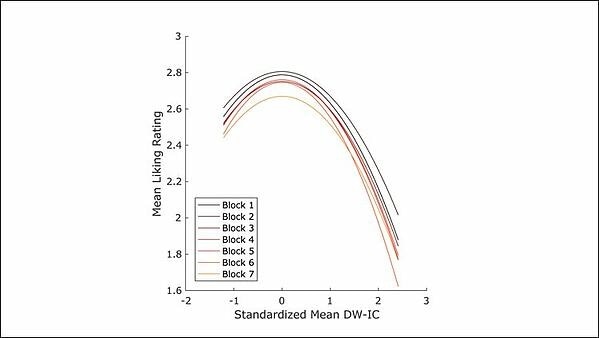People prefer songs with only a moderate amount of unfamiliarity and unpredictability, according to research recently published in JNeurosci.

Scientists have struggled to understand why activities of little evolutionary value, like listening to music, bring so much pleasure. Previous studies have linked listening to music with activation in reward centers of the brain but have produced conflicting results on how musical complexity relates to pleasure.
Gold et al. employed a computer model to determine the complexity of music fragments and then asked listeners to rate how much they liked the songs on a scale from one to four.
Listeners preferred songs of medium complexity, which involved features such as predictability and familiarity. Unfamiliar types of songs were liked more if they were predictable, while familiar songs could contain more surprises and still be liked.
These results correspond with insights into how the brain learns best: challenges and new situations of medium complexity provide the most enrichment with the least frustration.
Source:
Journal reference:
Gold, B.P., et al. (2019) Predictability and uncertainty in the pleasure of music: a reward for learning?. JNeurosci. doi.org/10.1523/JNEUROSCI.0428-19.2019.